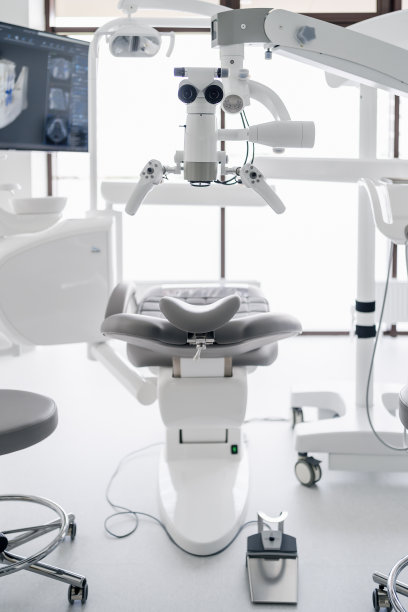Summary: Undergoing root canal treatment can be a pivotal moment in preserving oral health, yet it requires careful planning and consideration both before and after the procedure. This article outlines essential precautions to take that will facilitate a smoother experience and promote better recovery. Focused on four main aspects—pre-appointment preparations, during the treatment care, post-treatment instructions, and long-term oral hygiene practices—this comprehensive guide aims to equip patients with the knowledge needed for optimal recovery and sustained dental health. By adhering to these precautions, individuals can minimize complications and ensure a successful outcome.
1. Pre-Appointment Preparations for Patients

Before undergoing a root canal treatment, it is essential to have a thorough consultation with your dentist. This discussion should cover your medical history, current medications, and any allergies you might have. Transparency about your health status allows your dentist to tailor the treatment plan to your needs.
Ensuring that you have all necessary diagnostic tests completed, such as X-rays, is also crucial. This will provide your dentist with a visual of your tooth structure and any potential complications that may arise during the procedure. Be proactive and check for any other dental issues that might need addressing.
Furthermore, it is wise to arrange for someone to drive you home after the operation. While anesthetics used might not impair your ability to drive fully, its always better to err on the side of caution, as you may feel disoriented or fatigued afterward.
2. Caring During the Treatment Process
During the procedure, staying relaxed can significantly impact how smooth the experience goes. Communicate with your dentist if you feel any discomfort or anxiety. Your dentist is trained to use techniques and medications to help ease your anxiety, making the entire experience more bearable.
It’s also beneficial to understand what to expect during the treatment. Familiarizing yourself with the process can demystify it and reduce any fear or apprehension. Ask your dentist to explain each step; knowing what happens next can provide psychological comfort.
Maintaining good communication throughout the treatment is essential. Inform your dentist immediately if you experience any unusual sensations or discomfort, as this allows them to adjust their techniques for your comfort.
3. Post-Treatment Instructions for Recovery
After the root canal, carefully following your dentists post-treatment instructions is critical. This may include taking prescribed medications, such as pain relievers and antibiotics, and adhering to any prescribed oral rinses. Understanding the purpose of each medication can motivate adherence and ensure better recovery.
Its advisable to eat soft and non-sticky foods for the first few days post-treatment. Avoid hot and cold drinks as well, as they can lead to discomfort in the treated area. Gradually reintroducing your regular diet can help you gauge how well youre healing.
Moreover, keep a close watch on any signs of complications. Persistent pain, swelling, or discharge from the area may indicate an infection, and you should contact your dentist immediately if these occur. Early intervention is key to preventing more significant issues.
4. Long-Term Oral Hygiene Practices
Once youve fully recovered from your root canal, its essential to maintain diligent oral hygiene practices. This includes brushing at least twice a day and flossing daily to remove plaque buildup and prevent future infection.
Scheduling regular dental check-ups is also crucial for monitoring the health of the treated tooth and the surrounding areas. These visits will allow your dentist to catch any possible issues early, enhancing your chances of long-term success.
Lastly, being conscious of your dietary choices can have a lasting effect on dental health. Limit sugary snacks and drinks, as they can foster an environment conducive to decay and gum disease. A balanced diet rich in nutrients can help maintain strong teeth and gums.
Summary:
In summary, preparing adequately before your root canal, practicing care during the treatment, diligently following recovery instructions, and committing to long-term oral hygiene are fundamental aspects of ensuring optimal oral health after this procedure. By implementing these precautions, you can help facilitate a smooth recovery and maintain your dental health effectively.
This article is compiled by Vickong Dental and the content is for reference only.
Vickong Dental
Vickong Dental is a large medical group established in Hong Kong in 2008 by professors from well-known medical universities in Guangdong and Hong Kong, as well as medical doctors from key national '985' universities (including Master's supervisors and senior professors). The chain of branches brings together expert dentists with PhDs and Master's degrees from Hong Kong and Mainland China, committed to providing high-quality dental treatment.
"Vickong Dental Practices the University Motto of 'Healing and Serving Society,' with a Stable Operation for Sixteen Years. It Has Been honored with Hong Kong Enterprise Leaders's Choice,' and is a Global Trusted Implant Center for the Nobel Implant System. Recommended by Hong Kong Metro Broadcast and Guangdong Television, it Serves Customers from Over Thirty Countries and Regions, Gaining the Trust and Favor of Citizens from the Guangdong-Hong Kong-Macau Greater Bay Area and Surrounding Cities.

Thousands of customers' unanimous praise
The most recognized and highly recommended dental service by customers in the Guangdong-Hong Kong-Macau Greater Bay Area
We Ensure You Receive Detailed Care and Attention Here
Hong Kong standards, Shenzhen prices, Your Trusted English-speaking dentists

Vickong Dental Medical-Grade Instrument Disinfection Process
Vickong Dental Medical-Grade Instrument Disinfection Process

Vickong Dental Chain: A Warm and Comfortable Environment for Treatment






Appointment Hours

Q&A
Why choose Vickong Dental?
Vickong Dental practices the university motto 「Medicine to Benefit Society」, with each branch bringing together highly qualified dentists with doctoral and master’s degrees from Hong Kong and the Mainland, and has maintained seventeen years of steady operation。Recipient of 「2024 Hong Kong Enterprise Leaders Brand」, 「2025 Hong Kong Enterprise Leaders Brand」, a Nobel Biocare Global Trusted Implant Center, and a brand recommended by Metro Radio Hong Kong and Guangdong TV。
To date, we have served customers from more than thirty countries and regions,earning exceptionally high word-of-mouth recognition and trusted recommendations from residents across the Guangdong-Hong Kong-Macao Greater Bay Area and surrounding cities
We have eight major branches in Zhuhai、Shenzhen,and a consultation and service assurance center in Hong Kong,so you can book a free consultation at any time for any questions,which is very reassuring.
If I do not accept the quotation after the CT scan, will I be charged??
No! As long as the actual treatment has not started, you will not be charged any fees.
Will there be any additional charges during the treatment process?
No, there won’t be any additional charges. Before treatment begins, we will clearly explain the treatment plan and its corresponding fees. Only after the patient agrees and signs the consent form will we proceed with the dental service.
Can I pay in Hong Kong dollars?
Yes. Vickong Dental accepts payment in Hong Kong dollars. The amount will be converted based on the exchange rate of the day, and the applicable rate will be clearly communicated to you in advance.
Can I reschedule my appointment at any time?
Yes. Please contact us via **WeChat** or **WhatsApp** as early as possible, providing your original appointment time and details, along with your preferred new date and time slot for rescheduling.













